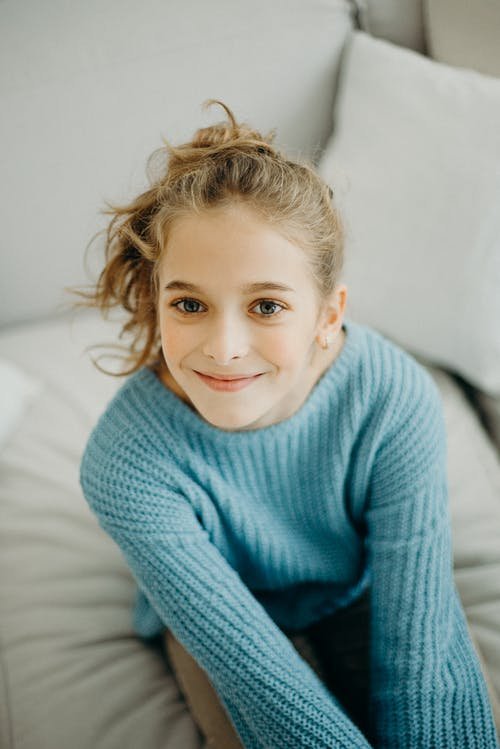Back-to-School Reset: How Social Skills Groups Help Kids & Teens Thrive After Summer
/The transition from summer freedom to school structure can feel bumpy—for students and parents. New teachers, changing friend groups, unspoken social rules in the classroom, and the pressure to “start strong” can stir up anxiety, avoidance, or acting out. The good news? Social skills are teachable—just like math or reading—and with a little coaching and practice, kids can feel more confident, connected, and ready to learn.
At Serene Mind Counseling + Evaluations in Tampa, we’re launching our fall Social Skills Group on Monday, September 8 at 6:00 PM (Tampa office) to support children and teens as they head back to school. Below, we’ll break down how social skills groups work, why they help after summer break, and what your child can expect.
Why Back-to-School Is the Perfect Time for a Social Skills Boost
1) Routines Reset:
Summer loosens schedules. Group work helps kids rebuild predictable routines—greeting peers, taking turns, asking for help—so school days feel smoother.
2) Friendships Shift:
Class lists change, and friendships evolve. Practicing conversation starters, flexible thinking, and perspective-taking reduces the “Will anyone sit with me?” worry.
3) Classroom Expectations Rise:
Following directions, transitioning, and self-monitoring are skills—not personality traits. Rehearsing them in a supportive group makes them easier to use in real classrooms.
4) Confidence Grows with Reps:
Kids don’t learn social skills from lectures; they learn by doing. Guided role-plays, games, and feedback build muscle memory that sticks.
What Social Skills Groups Teach (and How That Helps in School)
Communication Essentials
Starting and joining conversations without “hijacking” the topic
Active listening (eyes, body, brief comments)
Asking for help or clarification respectfully
School impact: smoother group projects, fewer conflicts, easier rapport with teachers.
Emotion Awareness & Regulation
Naming feelings (beyond “good/bad”) and linking them to body cues
Calming strategies: breathe, move, ask for a break, self-talk
School impact: fewer blowups, more stamina for learning, quicker recovery after setbacks.
Flexible Thinking & Problem-Solving
“Both/And” thinking vs. all-or-nothing
Making a plan B when the plan changes
School impact: easier transitions, better frustration tolerance, increased resilience.
Friendship Skills
Reading social cues and boundaries
Sharing, turn-taking, and fair play
Repairing after a mistake (“I’m sorry, can we try again?”)
School impact: more invitations, less isolation, healthier peer dynamics.
Executive Function in Action
Planning, prioritizing, and getting started
Using checklists and prompts
School impact: improved homework follow-through and independence.
How Our Group Works (So Skills Actually Stick)
Small, age-matched cohorts
We group participants by developmental stage to keep content relevant and practice safe.
Structured sessions with play-based practice
Each 60-minute session includes:
Warm-up & check-in (name a feeling and why)
Skill of the day (e.g., “How to join a group kindly”)
Guided practice (games, role-plays, real-life scenarios)
Coaching & feedback (specific, kind, actionable)
Take-home tool (practice skills at home)
Trauma-informed & neurodiversity-affirming
We honor each child’s nervous system and communication style. We use strengths-based language, sensory supports, and choice.
Who This Group Is Great For
Kids/teens who feel anxious about making friends or speaking up
Students who talk “at” others, interrupt, or struggle to share
Children who get stuck when plans change
Learners with ADHD, autism, or social communication challenges
Anyone who wants more confidence, empathy, and school success
If you’re unsure whether it’s a fit, we’re happy to help you decide.
What Families Often Notice (Fast)
“Mornings are calmer and we get out the door.”
“Fewer lunch/recess meltdowns.”
“They can tell me why they felt upset—and what they tried.”
“Teachers report better teamwork and follow-through.”
Consistency matters, and the group provides exactly that—a weekly, supported place to practice.
Fall Group Details — Tampa
Start date/time: Monday, September 8 at 6:00 PM
Location: Serene Mind Counseling + Evaluations, Tampa (South Tampa/Hillsborough area)
Format: Weekly, small-group, 60 minutes
Facilitators: Licensed therapists experienced in CBT/DBT-informed social skills, play therapy, and school collaboration
Parent updates: Weekly take-home summary + simple practice prompts
Spots: Limited to keep groups small and supportive
How to Enroll
Contact our Tampa office to reserve a spot and complete a brief intake.
We’ll match your child to the best-fit cohort (age and needs).
Receive your welcome packet with session schedule and parent tips.
Early enrollment is encouraged. Groups fill quickly at the start of the school year.
Quick Tips You Can Start Using Today
Name one feeling + one reason every afternoon: “I felt overwhelmed when the schedule changed.”
Practice a 10-second joiner: “Hey, can I help with the poster?”
Use the “3-step repair”: (1) “My bad.” (2) “Here’s what I meant.” (3) “Can we try again?”
Anchor a calm cue at home: same phrase, same breath count, same visual—so kids can use it at school.
Back-to-school doesn’t have to mean back-to-stress. With the right coaching and practice, your child can feel steady, capable, and connected.

